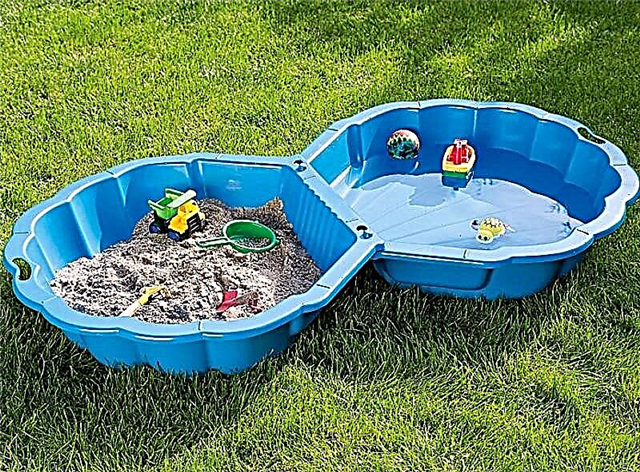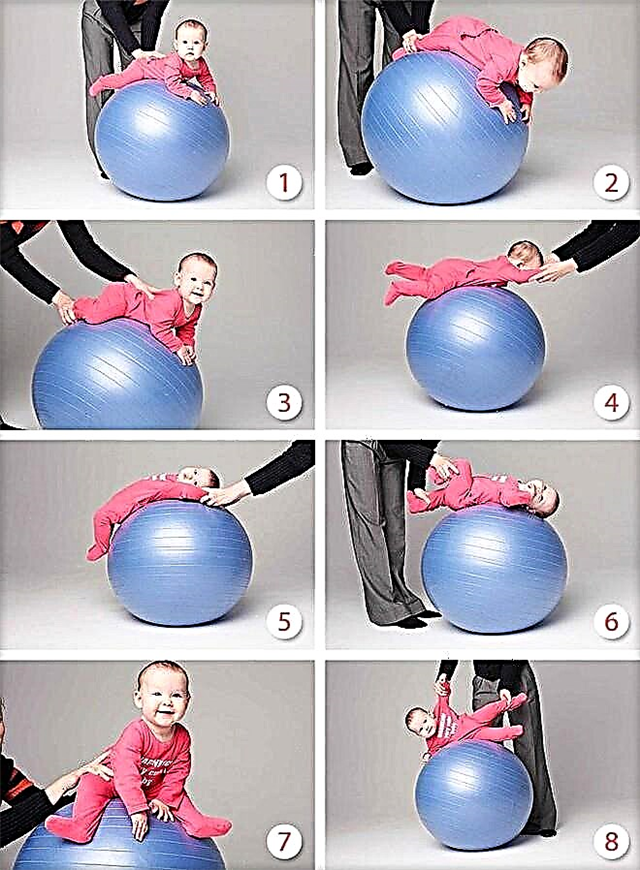Your baby is growing up, and during this period you will encounter many pleasant and not very pleasant moments. If a child has a nosebleed, the reasons may be different and this will become not only an unpleasant episode, but also a terrible one. After all, the younger your baby is, the more terrible it is to imagine what happened in the body.
 The breastfeeding period is characterized by the active development of your baby's body. If we consider the nose separately, then the newborn has a small one. The cavities, in other words the sinuses, which perform the function of warming the air, are still completely undeveloped. And the nasal passages are quite narrow, only 1 mm in diameter (we do not confuse the nasal passage with the vestibule of the nasal cavity, which protrudes on the face and is popularly called the "nose").
The breastfeeding period is characterized by the active development of your baby's body. If we consider the nose separately, then the newborn has a small one. The cavities, in other words the sinuses, which perform the function of warming the air, are still completely undeveloped. And the nasal passages are quite narrow, only 1 mm in diameter (we do not confuse the nasal passage with the vestibule of the nasal cavity, which protrudes on the face and is popularly called the "nose").
The sinuses are completed only by the adolescent period. In infants, the mucous membrane in the nose is abundantly supplied with blood, there are many arteries (capillaries) and veins, which are intertwined in a "ball". The coating is very delicate and fragile, especially in the antero-inferior part of the nasal septum. In this place, there is the largest accumulation of blood vessels that receive blood from the most significant arteries in the body of your crumbs - the sleepy ones. Therefore, as soon as this place is traumatized, profuse bleeding of bright scarlet blood occurs.
Remember, nosebleeds can come from many influences. Do not panic!
Why does the child have nosebleeds?
The reasons can be divided into those that are directly related to the nose, and those that are associated with other diseases of the body.
Local causes
- Injury. It occurs as a result of "picking" in the nose, pushing foreign objects (small parts of toys, cotton swabs) and with strong blows. Most often, babies hit the corners of furniture and when they fall. Important! If the blood after an injury does not stop for a long time (more than 10-15 minutes) and you notice swelling in the nose or any deformation, immediately seek help from the clinic.
- Dry, "hot" air in the room where your baby spends most of the time. Do not place your baby's crib close to heaters or radiators.
- General overwork of the child. A baby's hyperactivity can cause excessive bleeding. Try not to engage in active games before bedtime, when the body is already physiologically preparing for rest.
- With strong and tearful crying or with prolonged coughing, blood may also appear. This process is based on an increase in pressure in the vessels and their increased fragility.
- Differences in atmospheric pressure and changes in the climatic zone. Most often this happens when traveling to the sea, to mountainous areas, when flying by plane. In the process of growing up, as a result of full development, such bleeding will go away without intervention.
- Rhinitis is either allergic or caused by viruses. The rupture of the vessel wall with a cold occurs due to thinning and edema of the mucous layer.
- Chronic diseases of the nose, adenoid growths.
Common causes
A child's nosebleed and common causes are diseases that may be accompanied by this symptom:
- Infections: acute respiratory infections, flu, measles and others. It occurs due to an increase in body temperature.
- Non-infectious conditions in which blood pressure rises - sunstroke, unusual physical activity, overheating.
- Hemophilia, long-term use of drugs that affect blood clotting.
- Leukemia.
- Disorders in the liver and kidneys. These are both congenital anomalies and acquired ones - cirrhosis, nephritis.
- Long-term use of antipyretic and analgesic drugs - Aspirin and Paracetamol, Ibuprofen.
- Decongestants (Xylometazoline, Tetrizolin) are drugs that are used to treat a cold. They constrict blood vessels so that there is no rhinorrhea (discharge of mucus from the nose). Frequent instillation of such a drug will lead to dryness in the nose, and then to mucosal atrophy and frequent bleeding.
- Arterial hypertension as an independent disease in a child.
- Diseases of the oral cavity. The focus of chronic infection can be a carious tooth.
- "Hormonal maturation". Most often in girls, during an important period of the formation of the menstrual cycle.
Most often, nosebleeds in children under one year old appear as a result of mucosal trauma. In the nose during this period, the submucosa is completely undeveloped, namely its cavernous part.
How to stop a child's nose bleeding?
What to do if your child suddenly has a nosebleed?
What is the right thing to do, and what can you do yourself?
 Initially, you do not need to panic, it is scary not only for you, but also for your baby.
Initially, you do not need to panic, it is scary not only for you, but also for your baby.
Take the baby in your arms. If a teenager is bleeding, he can sit on his own with his back resting on the back of a chair or sofa. Tilt your head forward.
Don't throw your child's head back! You need to know when the blood will stop and how much blood your baby will lose. Also, options with laying the child on their back are not suitable.
 If bleeding outside, it is better to take the child to the shade or to a cool place.
If bleeding outside, it is better to take the child to the shade or to a cool place.
Talk to your baby. He is scared, he does not understand what happened to him and why he started bleeding. Try to explain that nothing terrible happened.
You can play a game: I inhale the air through my nose and exhale through my mouth. Such breathing will help the baby to calm down and, under the influence of the air flow, the blood will coagulate faster and stop flowing.
Place a cold object on the bridge of the nose.
If you took out anything from the freezer, ALWAYS wrap it in a cloth (towel, napkins). Otherwise, your baby will also get local frostbite!
Keep a cold object for no more than 5 minutes.
If, after a cold compress, the blood does not want to stop in any way within fifteen minutes, contact an ambulance.
What if a child often has nosebleeds?
Be aware that for recurring episodes, it is imperative to consult your child with a doctor. If the baby often has nosebleeds, this is a serious reason to be alert.
You should contact an otorhinolaryngologist to exclude diseases of ENT organs, as well as a pediatrician. He will explain to you what examinations will need to be done to exclude serious diseases:
- hemophilia. The indications of thrombin and prothrombin tests are taken into account;
- liver disease - you should take a biochemical blood test, pay attention to the level of alanine aminotransferase (ALT), aspartate aminotransferase (AST), bilirubin (both direct and total), creatinine, alkaline phosphatase;
- diseases of the cardiovascular system. To help diagnose - electrocardiogram, ultrasound examination of the heart. If there are changes, Holter monitoring is additionally used;
- kidney disease can lead to high blood pressure, and adrenal damage affects the vascular wall. It is necessary to pass a general urinalysis, urine analysis according to Nicheporenko, if there are changes, an ultrasound examination of the kidneys is shown;
- a blood test for hormones, especially in adolescent children;
- leukemia is a serious blood disease that must be ruled out in case of frequent and persistent bleeding from the child's nose.
How to avoid nosebleeds?
- Indoor air is very important. First, ventilate your child's room at least twice a day. Second, avoid dry and hot air. Do not put your baby's sleeping place near heating areas. Thirdly, a humidifier should be used if you live on the upper floors of an apartment building (from the fourth and higher), especially on the sunny side, especially in the cold season when the heating is on.
- Avoid injury. Secure the area where the child is most of the time. Furniture without corners or with protection, carpets on the floor should not cling to the baby's legs, and all objects that the baby is able to pull on its head should be removed. A child should never be left unattended by an adult.
- Get involved in strengthening the immune system. Start small - devote about an hour daily to walks, just walk in the fresh air. It is not necessary to "feed" your baby with immunostimulating drugs, you can use decoctions of wild rose and hawthorn, give tea with lemon or ginger.
- If your baby is allergic, it is worth protecting him from allergens. Double wet cleaning of the room, replacement of bedding (pillow and blanket made of synthetic fabrics, as well as a mattress, not a feather bed). Unfortunately, pets can cause allergic rhinitis.
- Don't overload your child. A correct and rational day is the key to the successful development of your baby. Children should wake up and go to bed at the same time. We get up on weekdays and weekends, for example, at seven in the morning, and go to bed no later than nine in the evening. Leave active and emotional games for the daytime.
- If the child is sick, then be sure to heal him. Do not rush to send him to kindergarten or school immediately after the temperature returns to normal. Give your baby at least seven days. During this time, the cold will pass, and the immune system will begin to work.
Article rating:



